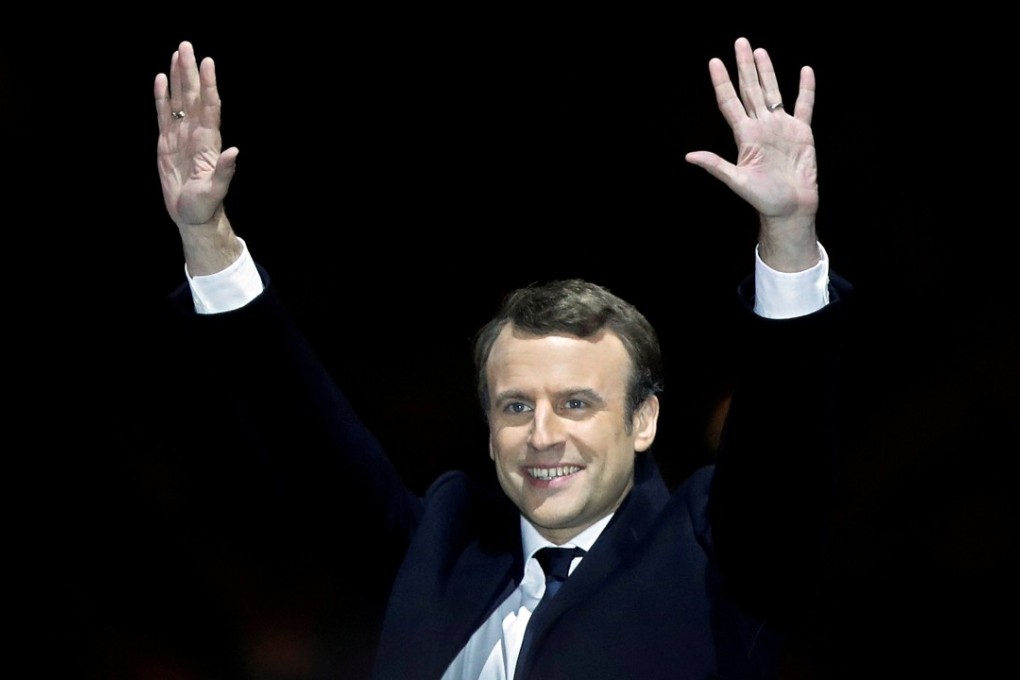Asian Angle | What China, East Asia have to fear from Macron’s hollow ‘victory’ in France
Europe’s far right may have just lost an election, but it has not lost momentum. The anti-globalisation message should not be lost on the Asian leaders meeting in Beijing to discuss the Belt and Road trade initiative

Much of the world heaved a sigh of relief when Emmanuel Macron emerged victorious in France’s presidential election last weekend. His victory over the National Front’s Marine Le Pen was seen by many as a sign that the rise of the far right in Europe had finally been arrested.
Even far off places such as East Asia had reason to cheer, as markets responded to the reassurance: stock indexes across the region ticked up.
But before the celebrations grow too loud, we should take note: the music stops here for European politics.
As David Brady, a political scientist in Stanford University, writes in The American Interest: “The rise of rightist, anti-immigrant parties is not exclusive to France. In the June 2015 elections in Denmark, the anti-immigration, anti-Brussels People’s Party won a quarter of the vote, while in Austria, the Freedom Party won more than 20 per cent in the September 2013 elections, the country’s most recent.”
Finland, the Netherlands, Serbia, and Switzerland all have similar movements, as does Italy, whose Northern League (Lega Nord) doubled its share of the vote in 2010 to become Silvio Berlusconi’s major coalition partner.


